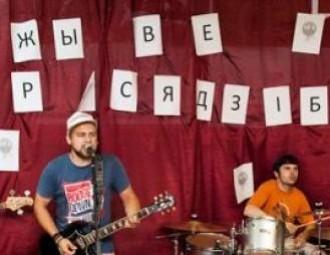"Art Siadziba" is changing room for the fifth time in the last few years

The reason why the cultural site “Art Siadziba” (“Art Estate”) is evicted is break of the lease agreement due to “the need to its own garment production” declared by the owner of the premises.
The cultural site "Art Siadziba" ("Art Estate") is evicted from the premises on the Instrumental Side Street, 6. This week, "Art Siadziba" launches a defense campaign, says press service of the HRC “Viasna” referring to RFE/RL.
"The owner of the premises where "Art Siadziba" has been located for four months already, Belarusian Society of Hunters and Fishermen, decided to break the lease agreement, citing the need to its own garment production," reads the information on the website of "Art Siadziba".
By the way, a theatrical studio rents premises in the same building. However, unlike "Art Siadziba", it is not evicted. "Art Siadziba" was prescribed to vacate the premises by February 21, the Day of the native language.
"We received the letter from the Belarusian Society of Hunters and Fishermen back on January 22. At first we decided not to report it to the media. We gathered all our great team, participants of the school of arts managers, and started to think what to do next. We decided unequivocally that we would not simply submit to it, as we are tired of moving, searching for premises and worrying that the rent agreement can be terminated at any moment,” says Pavel Belavus, one of the leaders of "Art Siadziba".
"That's why during the last two weeks we have carefully prepared a campaign of solidarity and support to "Art Siadziba", a special website. On Monday we are going to present the campaign which will focus on the mobilization of the youth, intellectuals on creating a "people's Art Estate" in the heart of Minsk. We won't tell any details until Monday."
Let us recall that during the few last months, "Art Siadziba" hosted more than 80 various events, including the presentation of the project of Radio Liberty "Belarusian national necropolis".
-
03.01
-
07.10
-
22.09
-
17.08
-
12.08
-
30.09



























